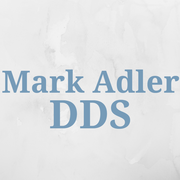
If you’re pregnant, you can count on your body to go through many rapid changes to support the healthy growth of your baby. While these changes serve important purposes, they can sometimes lead to issues that affect your well-being, including uncomfortable and complex oral health complications. Here’s what you should know about protecting your teeth and gums during pregnancy — and how a trusted dentist can help enhance your oral hygiene.
What Oral Health Problems Are Common Among Pregnant Women?
Tooth Decay
When you’re expecting, your body will use calcium to help your baby grow strong bones. Unfortunately, this may deplete your stores of this mineral, which you need to keep your teeth healthy.
Also, morning sickness may cause vomiting that exposes your potentially weakened teeth to harmful stomach acids that increase the risk of cavities.
Gingivitis & Gum Disease
Hormonal changes can increase the expectant mother’s production of plaque — a natural, colorless film of bacteria found on teeth and gums. In response to plaque, gums can become inflamed or swollen.
This inflammation makes it easier for bacteria to infect the tissue and cause gum disease. This common condition can lead to bleeding, receding, and sensitive gums, while also raising the risk of tooth loss.
Pregnancy Tumors
 Pregnancy-related gum inflammation can sometimes cause growths, known as pregnancy tumors, to form on the gum tissue. These growths are relatively low-risk and will go away after the baby is born. However, dentists can remove them if they are causing you pain or discomfort.
Pregnancy-related gum inflammation can sometimes cause growths, known as pregnancy tumors, to form on the gum tissue. These growths are relatively low-risk and will go away after the baby is born. However, dentists can remove them if they are causing you pain or discomfort.
How Can You Improve Dental Hygiene During Pregnancy?
Visit your dentist soon after you learn of your pregnancy. During an oral exam, your provider will catch and treat potential problems — such as cavities and gingivitis — before they get worse and expose your body to additional stress. They will also provide teeth cleaning to clear away stubborn plaque and reduce your risk of cavities and gingivitis.
You should also take steps to enhance your oral hygiene at home. For regular plaque control, you should brush at least twice a day and floss at least once a day. Depending on the recommendations from your health care team, increasing your calcium intake may be necessary to keep your teeth strong.
If you experience morning sickness, don’t brush your teeth immediately after. Otherwise, you may aggravate the acidic reaction and intensify enamel wear. Instead, rinse your mouth with water and wait 30 minutes before brushing.
If you’re expecting a baby, visit Mark Adler DDS to keep your smile in shape throughout the pregnancy. Serving patients in Northfield, OH, for more than three decades, this experienced dentist knows how to treat and prevent all pregnancy-related oral health matters. Dr. Adler will customize your care to accommodate your oral hygiene needs safely and comfortably. Visit this clinic online to learn more about these services or call (330) 468-3511 to schedule an appointment.
About the Business
Have a question? Ask the experts!
Send your question

